Translated by Yusuf Laher
[1 – 25] Part One
[26 – 45] Part Two
[46 – 74] Part Three
[75] Life after death
Generally people think that when a person dies and he is placed in the qabr (grave), he remains alone in that fearful place and that life there is ‘lifeless’. Friends! This is not so! There is great comfort for a Muslim there.
It is mentioned in the hadith sharif that the arwah (souls) come and meet and welcome him (the newly deceased). Also, relatives and family who passed away before him come and meet him. They ask him questions regarding their relatives (who they think are still living). If this newly deceased answers that so and so has already passed away, they express their grief and say that that person has entered jahannam (hellfire) otherwise he would have definitely met us. The arwah become saddened at that person’s entry into jahannam. Anyway, the arwah meet each other and become happy. People think that after death one will just lie lifeless and useless! La Hawla wa La Quwwata illa Billah!
Behold! Qabr is not merely that hole. The hole is the external and visible form. In reality qabr is the name of ‘alam al-barzakh (the realm of barzakh). There, they meet each other and it is a meeting of the pure.
People get separated in the world. A worker obtains leave and returns home to stay with his family. On completion of his leave he returns to his place of employment and gets separated again. On the other hand, in the realm of barzakh the togetherness and companionship doesn’t come to an end. There is comfort upon comfort there. The problem arises due to people being unaware of the reality of death, resulting in an unwarranted fear, whereas mawt (death) is a bridge by which one meets the Beloved i.e. Allah Most High! What can be better than meeting Allah Most High? For this very reason do the Ahlullah long for death. Ask them regarding the reality of death! A hadith says: Death is a gift unto a believer.
If the ruler of Hyderabad sends a gift to a person, isn’t it a shame if the recipient’s family cries and laments on such an occasion? What I am referring to here is deliberate and intentional grief and not natural and uncontrollable grief which occurs at the time of separation. There is no harm in natural grief. To deliberately bring back memories of sorrow for the purpose of increasing the grief is wrong and evil. In fact a person should rather ponder over the above-mentioned points with the intention of decreasing the grief.
This world compared to the akhira (hereafter) is like the womb of the mother. For as long as the baby remains in the womb, it considers the womb to be everything. Even if the baby is told to leave the narrow confines of the womb and enter the spacious world, it will not believe and will still consider the womb to be everything. Eventually, when the baby does emerge from the womb, it now sees the world and realizes that the womb is insignificant compared to the world. If the baby is told to re-enter the womb it will refuse and never accept to go back. In the same way, this world compared to the akhira is absolutely narrow and confined. When a person departs from this world he will express shukr (gratitude) and never wish to return.
When the time draws near to meet Allah Most High (the time of death), the bounties of the hereafter are revealed to the dying person. If at that time the dying person is offered a life prolonging substance and is told that if you consume this you will live longer, he will angrily reject it and will wish that he dies immediately.
There was a foreign student who was affected by the plague. To pacify him people would tell him not to worry and grieve, for he will be cured. He would say in reply: “Don’t say that, for now I desire to meet Allah Most High and at this very moment I am receiving the following glad tidings from Allah Most High:
تَتَنَزَّلُ عَلَيْهِمُ الْـمَلائِكَةُ ألاّ تَخَافُوْا وَ لاَ تَحْزَنُوْا وَ اَبْشِرُوْا بِالْـجَنَّةِ الَّتِى كُنْتُمْ تُوْعَدُوْنَ
On them angels will descend (at the time of death) (saying): Fear you not, nor grieve! But receive the glad tidings of janna, which you have been promised. (Sura Fussilat)
Another example is when a ruler sends a proposal of ambassadorship to someone. When this person departs from his home his family will be grieved by his separation but he himself will be happy, eager and excited. Even if the ruler tells him that he may delay his departure by a few days, he will not be happy and will wish to depart immediately.
In the same manner, a person is not only informed of the bounties of the hereafter (at the time of death) but also sees it. He will never be pleased to remain in this world even if he is told to do so.
Friends! Desire that which is by Allah. It is because of this desire that the Ahlullah always remain in high spirits, they constantly desire the various boons of the akhira. They are never grieved. In short, death is child’s play for the Ahlullah and they are preoccupied with it.
We should also adopt this attitude and condition. Instead of grief we should experience the desire for death.
An easy way to develop this desire is to ponder over these points I have mentioned. Insha Allah it will be a cure for grief and simultaneously the desire for the akhira will be developed.
So, in the verse:
مَا عِنْدَكم يَنْفَدُ وَ مَا عِنْدَ اللهِ بَاق
Allah has given us this cure.
SubhanAllah! What an amazing cure! Meditate frequently that the pleasures and comforts of the akhira are far more superior and much more than worldly comforts and also that the deceased have reached Allah. Meditate that it is better for the deceased to stay with Allah than to stay with us, for Allah loves him more than we can ever love him.
It is mentioned in a hadith that the love of Allah for His servant is much more than the combined love and affection expressed by animals and mothers towards their offspring.
Although there is a possibility of the deceased receiving punishment in the akhira, why should we think ill of our deceased and believe that they are receiving the punishment meted out to sinners? In accordance with this hadith: “My mercy has overtaken my wrath”, think well of the deceased. For him (the deceased) to receive this mercy make du‘a for him and also isal al-thawab (by giving charity, making tilawa, etc.) and sending the thawab to him. This is more beneficial to the deceased than merely expressing our grief and sadness.
[76] Life after death (2)
Someone inquired as to the benefit of going to the qabr and making du‘a, etc. thawab can be sent from any place. (Why should one go to the qabr?) Hadrat replied: “There are three benefits in this practice (of going to the qabr). The first is when a person visits the qabr, besides du‘a and thawab for the deceased, the visitor himself is reminded more of death. The second spiritual benefit is that the deceased finds solace in dhikr, whether it is made softly or loudly. Whether recited audibly or inaudibly, Allah Most High makes the sound of reading reach the deceased. This is not only peculiar to the awliya, instead all deceased Muslims are able to hear (the reading). The ruh (soul) compared to when the person was living, becomes more independent after death (due to freedom from worldly constraints) and its perception is increased. Thirdly, the rays of nur spread by the dhikr, tilawa, etc soothe the deceased.
[77] Life after death (3)
Although the thawab of monetary ‘ibada and physical ‘ibada reach the deceased, the thawab of monetary ‘ibada is more beneficial to the deceased.
[78] Life after death (4)
According to Hadrat Haji Saheb [1]Hadrat Haji Imdadullah, the Shaykh of Hadrat Thanawi (May Allah have mercy on him) the full thawab reaches the deceased and it is not divided. Out of respect, one should recite something separately for the thawab of Allah’s Messenger (Allah bless him and give him peace). If one doesn’t have the courage to recite much, Sura Ikhlas recited thrice will suffice. Hadrat Haji Sahib further says: I make the intention of passing the thawab to the Messenger of Allah (Allah bless him and give him peace), all the anbiya (May the peace of Allah be upon them), the pious, all Muslims male and female who have already passed away, who are still living and who are still to be born. Sometimes I also recite separately for a certain deceased. On being questioned, he (Hadrat Haji Sahib) said: “The living also receives the thawab of ‘ibada (by way of isal al-thawab.”
[79] The concession and the formal ruling
In certain circumstances I prefer practicing on the rukhsa i.e. concession (easier ruling of the shari‘a) than on the formal ruling. A person who regularly practices on the conventional ruling tends to start focusing on his actions. He considers that which he receives to be less than what his actions deserve. He develops this complaint that for so many days I have undergone the difficulty of abstinence and taqwa, and spent so much time in dhikr and devotion, yet thus far I have received nothing! What an evil thought! On the other hand, a person who occasionally practices on concession does not focus on his actions. Whatever he receives he considers it to be more than what he deserves. He doesn’t complain if he experiences no special spiritual conditions. He tells himself that his actions are not deserving of such bounties.
Anyway, a person who practices on concessions always feels that the favors of Allah far exceed his worth, thus he develops a natural love for Allah and what a great gift this is!
[80] Serving others
Serving others is a great virtue. It is not easy to take difficulty upon oneself for the purpose of serving others. Most of the time she (the wife) is alone at home and she remains alone the entire day. These servants of Allah (the wives) have such a high degree of altruism and the quality of giving preference to others embedded in them, they never complain. In fact they would rather say “Do that which suits you, do not disrupt any of your habits because of me.” [At times], because of this altruism they get involved in debt despite me forbidding it and advising them not to take so much burden upon themselves. Anyway, my heart testifies that their maghfira (pardon and forgiveness) will be because of these qualities, insha’Allah.
[81] Comfort and divine love
Our nafs (lower self) have become so polluted that without comfort and ease we cannot develop love for Haqq Ta‘ala (Allah Most High). Therefore always stay in aram (comfort) but refrain from haram. Nowadays the pirs have made the people discard aram and have not prevented them from haram. Only those people should come to me who are prepared to be continually ‘grinded’. Every step they take they should ponder whether this is permissible or not.
[82] Method of discarding sin
Some sins are such that by discarding them no harm and anxiety is caused, e.g. shaving the beard, covering the ankles, etc. These sins which cause no difficulty by discarding them should be stopped immediately.
Other sins are such that by discarding them anxiety and uneasiness results. Regarding such sins I usually say that leave them gradually. Although there is no hope of leaving them immediately, the intention should be to eventually leave them. In fact, if the person applies too much pressure on himself to leave it, he will not leave it for his entire lifetime.
I also explain another method of leaving sin. Before sleeping and after locking the doors of your house (at night), daily make du‘a unto Haqq Ta’ala and say: “Wallah! I am truly most wretched, unworthy and vile.” Use the most severe words for yourself and thereafter say: “O Allah! My courage is insufficient to leave these sins, so You assist me!”
Adopt this method and in one or two weeks (in a short space of time) all sins will be discarded insha’ Allah, but no one is prepared to try this! It is like a student who doesn’t memorize his lesson and tells the teacher to memorize it himself!
[83] For success follow my instructions
I do not attach strenuous and difficult conditions to stay with me. I only ask you to follow my instructions and they are not difficult to abide by. I do not compel you to mujahada (spiritual exertion), I do not wake you at night nor do I decrease your food consumption. I only teach you a little dhikr that you should regularly do. I ask you to discard all sin and to reform your habits. By this I mean that no one should be caused harm or anxiety through your speech or action. Trusting in Allah, I say that whoever does this will never remain deprived. You tell me now, if this is a difficult task?
[84] Appreciate life
Someone asked Sayyidina ‘Ali (May Allah be pleased with him) whether he would have preferred to die in childhood and assuredly receive janna or become and adult and take the risk? He replied that I prefer becoming an adult and taking the risk. If I had died in childhood I would not have received the ma‘rifa i.e. recognition of Haqq Subhaanahu wa Ta‘ala. Although I am at risk now but I have received the ma‘rifa of Haqq Ta’ala. Ahead is whatever my Beloved (Allah) wishes. (The future is in the Hands of Allah).
Thereafter Hadrat said: Life should be appreciated. Therefore, according to me, it is absolutely necessary to look after ones health. Even if a person is not practicing on nafl (optional) acts, but when he is in ease and comfort he will develop love for Haqq Ta’ala. Man is ‘abd al-ihsan (a servant of kindness and favor), when he observes that he has been given ease and comfort, he will (automatically) be drawn and attracted (towards Allah Most High).
[85] Spiritual effects of the pious
I heard from Hadrat Haji Saheb (May Allah have mercy on him) that once a certain elderly saint was busy in Divine meditation. A dog passed by and coincidentally his gaze fell on the dog (while meditating). The effect was such on the dog that wherever it went other dogs would follow and wherever it sat, other dogs would sit in a circle around it.
On the humorous side, Hadrat (Thanawi) said: As if this dog became the shaykh of the other dogs! Thereafter he said: If the blessings of the pious can fall on animals, then how can man be deprived? Never lose hope! A little inclination is required (towards the pious).
[86] What to recite at the grave
After being questioned Hadrat Thanawi said: I usually recite those suras at the grave which have special virtues (for the occasion), e.g. Sura Fatiha, Sura Ikhlas (Sura Ikhlas twelve times because a narration mentions the special benefits of reciting it twelve times), Alhakumut Takathur (Sura Takathur), Idha Zulzilat (Sura Zilzal), Qul Ya Ayyuhal Kafirun (Sura Kafirun), Qul A‘udhu bi Rabbil Falaq (Sura Falaq), Qul A‘udhu bi Rabbin Nas (Sura Nas), Sura Mulk and Sura Yasin. Thereafter Hadrat said: You should recite while facing your back towards qibla so that you are facing the deceased.
[87] Replace sold property with another
It is mentioned in a hadith sharif that when selling fixed property, use the same money immediately and purchase another.
[88] Take on only as much as you are capable of
Never take on a responsibility which is more than what you can bear.
[89] Everyone cannot be kept happy
A person cannot keep everyone happy when he himself will face disagreeable conditions. Do not forsake your own expedience. Hold on to that which is beneficial and comfort for you on condition it is according to shari‘a. Thereafter do not concern yourself with criticism.
[90] Cure for the evil gaze
Someone asked the cure for evil gaze. Hadrat replied: Nothing will be effective besides courage and perseverance. Two things will assist: [a] the thought of punishment and [b] excessive dhikr.
[91] Withholding testimony for protection
Someone asked that although having the information one doesn’t testify because lawyers and court proceedings harass a person. Will it then be permissible not to testify? Hadrat replied: “It is permissible to save oneself from harm.” Thereafter it was asked: “Even if testifying is beneficial to the other person?”
Hadrat replied: “What about the harm being caused to oneself? Man is not obliged to put himself to harm for the benefit of others.”
[92] Protection of ones health
After inquiring the condition of a dhakir shaghil (a person involved in dhikr and devotion), Hadrat said unto him: You do not have (sufficient) strength. Stop the dharb (rhythmic movement of the head during dhikr) and also jahr (audible dhikr). Read your dhikr in the way a wazifa is read. Always consider two things: [a] the stomach and [b] the mind. Good health depends on the well-being of these two things.
[93] Obstinacy
Obstinacy is a habit that inconveniences others.
[94] Poverty: The Sunna of the Anbiya
(Someone complained of poverty). Hadrat said: Poverty is the Sunna of the Anbiya. Only that amount will be received which has been decreed for you. There is no special wazifa for it (to increase sustenance). Yes, you should make du‘a, Allah will grant you solace. When your connection with Allah Most High increases you will no more be troubled. The best way to increase the connection is to fervently supplicate.
[95] Intention when counting money
When taking money from someone and counting it, make the intention that you want to ensure that no extra money of that person has come into your possession.
[96] Every action: a means of maghfira
Once Imam Ahmad ibn Hanbal (May Allah have mercy on him) and another person were making wudu at a stream. The person was at the top section and Imam Ahmad at the bottom. The person thought to himself that Imam Ahmad is an accepted servant of Allah and my used water is flowing towards him, this is disrespectful. So he moved to a lower place than the Imam. After his death someone saw him in a dream and asked him if he received forgiveness or not? He replied that I had no good action by me. I was told that “You have been granted forgiveness due to the respect you had shown to Our accepted servant Ahmad ibn Hanbal! We have approved of that action.” Thus, it is mentioned in the hadith “O A’isha! Do not think low of any good action. Every good action has the quality of securing maghfira in it.” In the same way, every sin has the quality of bringing ‘adhab (punishment), whether a small or big sin.
[97] Baseless displeasure of people
A person on truth should not concern himself with the displeasure of people. Yes, he should try and avoid making enemies. If someone still becomes displeased, let him be. Allah is the Helper so focus your gaze on Him and keep Him happy. In fact, at times, the displeasure of people becomes a means of saving oneself from many calamities.
[98] The power of yaqin (firm faith)
Regarding the power of yaqin, Hadrat related the following incident: Ala’ ibn Hadrami (May Allah be pleased with him) was a sahabi. The Muslim army was on its way to Bahrain but came across an ocean en-route. Everyone suggested that boats be organized. He said that the Khalifa of Allah’s Messenger (Allah bless him and give him peace) had instructed us not to stop anywhere. Thus, I cannot wait (for boats), I will proceed now. He made du‘a unto Allah: “O Allah! You gave Musa (May the peace of Allah be upn him) a road in the sea. We are the slaves of the Prophet Mohammed – The Messenger of Allah (Allah bless him and give him peace! Grant us also a path! After saying this he entered his horse into the water. Everyone else joined him and they crossed the ocean! The point to be considered is the trust they had. They did not have the slightest doubt in their hearts. What can be said about the strength of their iman? The result was that the entire Bahrain was awe-struck by this. They couldn’t fathom whether these were humans or angels. This is power and strength of yaqin!
[99] Persevere in good actions
Keep up with the performance of good actions, even if they are of a low quality and irregular. Initially it happens that there is no proper order and one doesn’t feel like doing them but do not let that worry you. The day Allah grants you tawfiq, do it. Do not think that yesterday I didn’t do it, so what’s the benefit in doing it today? Do it whenever you can. A little inclination is needed, even if the deed is of a low quality and you miss occasionally. It is not possible that (eventually) you will not be rightly guided.
[100] Spend less in a wedding
According to the hadith, the more spent in a wedding, the less baraka will be achieved.

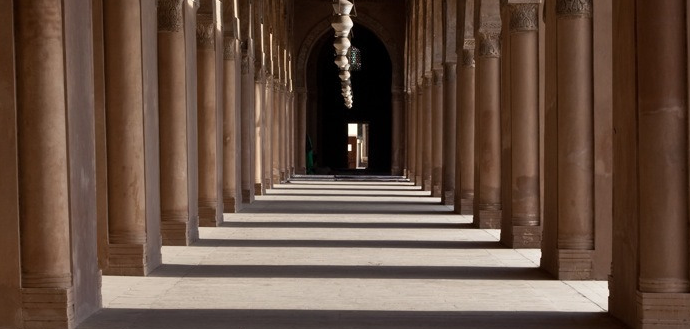
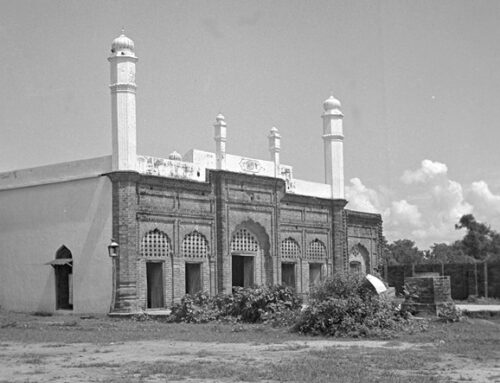
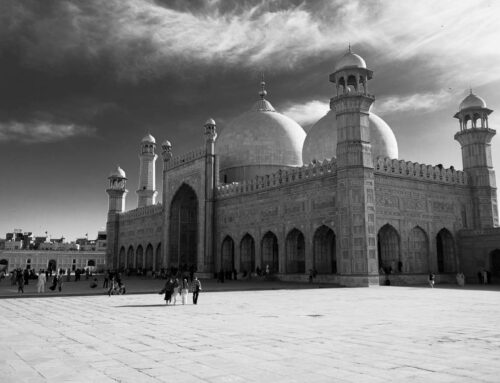
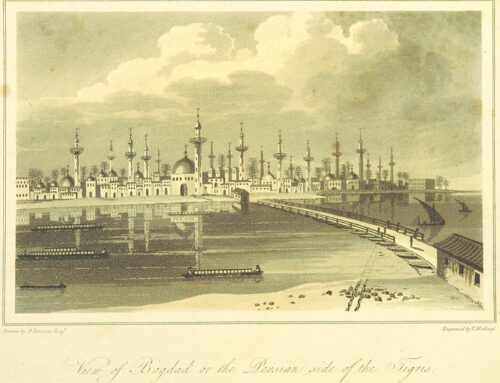
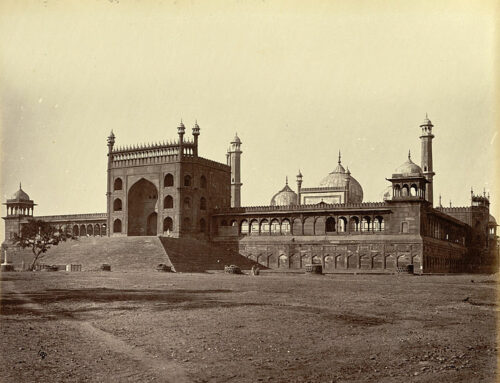
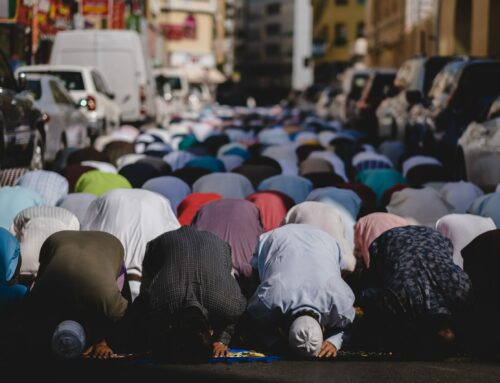
Assalamu alaikum,
How much more advices are there. There are too many things to do already, and I just want to know how much more there is which isn’t even in our knowledge.
Wa alaykum assalam,
The number of malfuzat of Mawlana Thanawi is probably in the thousands but if you’re asking about this particular book, the total number of advices in at are 154. Insha’Allah we’ll be publishing the remaining of the advices (101 to 154) in two or three parts on this blog.
Hamood